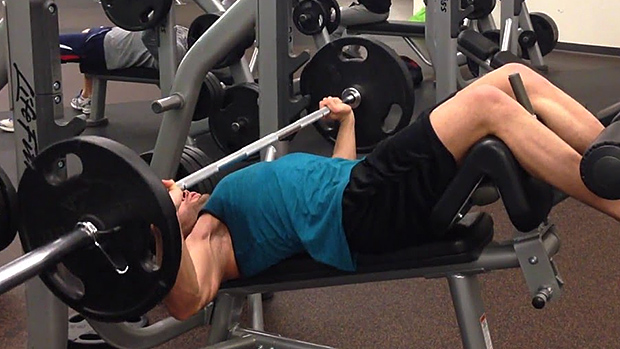The 2000 Meter Row
The rowing machine is a brutal device. And with one simple test you can evaluate your back, grip, legs, lungs, and mind. For competitive rowers, the 2000 meter row is the gold standard test.
As a lifter, you too should adopt this test to measure your own overall fitness. Unlike other cardiovascular exercises that overly test the legs and lungs, rowing is a full-body effort. The legs, back, biceps, and grip all get a complete workout. It's also much easier on the joints than a lot of other standard tests.
Finally, while there's some technique to it, for the fit male or female, complete mastery isn't needed to achieve the standard times.
In our gym, the standard for the 2000 meter row is very simple:
- Men need to get it done in under 7 minutes.
- Women need to get it done in under 8 minutes.
If you're slower than that, you need to continue working on it as a priority. Think that's an unfair standard? We're a small, private facility and we've had over 40 members get it done. You can too.
9-Plus Minutes for Men, 10-Plus for Women
You have a lot of work to do. Don't worry, there's some tips below for you.
8:30-9:00 Minutes for Men, 9:30-10:00 for Women
This isn't good, friend. Your conditioning is likely holding you back more than you realize.
8:00-8:30 for Men, 9:00-9:30 for Women
You've probably done some cardio, but not enough to be good at it. Get fitter.
7:30-8:00 for Men, 8:30-9:00 for Women
Respectable, but not where you want to be.
7:00-7:30 for Men, 8:00-8:30 for Women
You're very fit, but not quite there. Focus and get it done. At this point your mind is what's holding you back.
6:30-7:00 for Men, 7:30-8:00 for Women
Success! This is a level of fitness you should be proud of and will allow you access to anything else you want to do with exercise.
6:00-6:30 for Men, 7:00-7:30 for Women
Cardio freak. You're abnormally strong and fast.
Sub 6:00 for Men, Sub 7:00 for Women
Near the world record. Quit lifting. Your new life is rowing.
I've seen people fail the test for a wide variety of reasons. Due to the heavy demands on the legs and back, some people just aren't strong enough to keep up the power output for the 7 or 8 minutes needed to have success.
Some people have plenty of power, but gas out before they get to the finish line. Others fail mentally. Settling in and being willing to hurt for 7-8 minutes is too much for some people. They do fine during interval work when the duration is shorter, but somewhere around the 1200 meter mark, doubt starts creeping in and they give up.
For any lifter that wants to be as good as they can be, that's unacceptable. Unless you're a genetic anomaly, you're not going to achieve any of your fitness goals without a lot of work. If you can't commit to something for 7 minutes then there's no way you're going to commit long enough to hit a double bodyweight deadlift or a 300 pound bench press. Strength comes to those willing to continue putting in work, even when progress is slow.

Here's a couple of ways to fix it based on your problem:
Getting the pace down to 1:45 or 2:00 requires too much energy.
Increase overall strength in the squat, deadlift, trap-bar deadlift, power clean, and row variations. On the rower, try 5 short intervals of a distance where you can match the pace and then get longer over time. Start with 5x250 meter row and increase as that becomes doable.
Pace is manageable, but your lungs burn and you gas out early.
You're not "fit" enough for this challenge. Try working in longer intervals, like 3x1000 or 4x750 to increase endurance.
Pace is manageable, but somewhere around the middle, you give up.
You do well on intervals and the strength is there, but the 2000 meter row gives you trouble. This is harder to diagnose over the internet, but I'll do it anyway. You're mentally weak and need to get it together. This is a willpower thing. You're fit enough and strong enough; you just need to do it. Try hitting a 1200 meter row at a 2000 meter pace (1:45 or 2:00), rest 2 minutes, then do another 1000 meters at the same pace. If you can do this, you're there.





